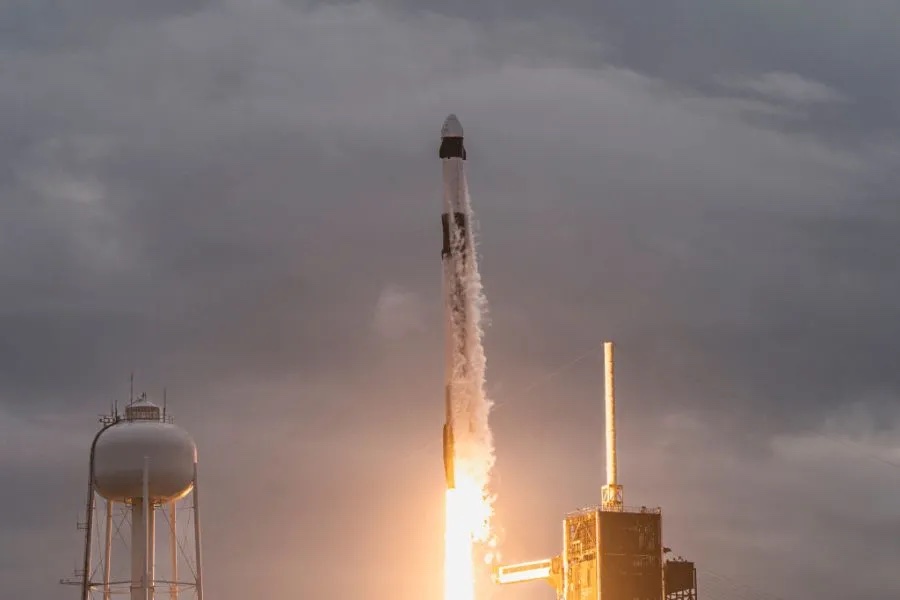Israeli defense minister Benny Gantz announced this week that Israel would maintain its policy of not supplying weapons to Ukraine. This drew criticism, including charges that Israel has a moral obligation to help Ukraine and is instead foolishly prizing its relations with Russia. Critics also note that Israel’s archenemy Iran is providing weapons and advisors to Russia. They further point out that Israel’s Ukraine arms embargo puts it out of step with Israel’s most important partners in the West, especially the United States.
Yet aiding Kyiv is a far riskier bet for Jerusalem than for most Western capitals. This is no easy call, and the one Israel made is probably the right one. Israel’s relations with Russia are linked to Israel’s vital national interests, and the benefit to Iran from its aid to Russia will not seriously increase the threat it poses to the Israelis. Even the diplomatic risks to Israel are murkier than they seem.
The root of all of this lies on Israel’s northern frontier, where its most urgent external threats are located. The Iran-backed Lebanese group Hezbollah has an arsenal of more than 100,000 rockets and missiles that it can fire into Israel should war come. In a war, the Hezbollah missile force could seriously hurt Israel — especially if advanced missiles allow it to target key infrastructure and defense sites. The Israelis have warned for years that this would not be acceptable to them. They would hit Hezbollah very hard to force the bombardment to stop. Hezbollah’s strong presence in Beirut and its illegal use of civilian sites to store and fire its rockets mean that the Israeli campaign would be devastating to Lebanese civilians. That’s bad on its own; for Israel, the high human cost could bring diplomatic isolation too. Iran and Hezbollah have also tried to turn Syria itself into a new front against Israel to break the mutually assured destruction that prevails in Lebanon. This effort has been less successful, but contributes to the threat in the north.
Israeli aid to Ukraine might worsen this problem thanks to Russia’s role in Syria. Russia has some of its best air defense systems protecting its bases in Syria. Israel has conducted hundreds of airstrikes on Iranian targets in Syria. Advanced Iranian missiles en route to Hezbollah have been a main target. Israeli governments from both sides of the political spectrum have seen the air campaign in Syria as essential to Israeli security. And Russia has done little to help the Iranians protect their positions in Syria. Part of this is strategic for Russia: Moscow does not want too much Iranian influence in Syria, and a war with Israel would gain nothing for Russia, especially given how overstretched its military is. Letting the Israelis attack is not a hard call.
Even so, winning the war in Ukraine must be a higher priority for Russia. Israel has no guarantee that it can interfere with Russia’s main security policy effort (Ukraine) without Russia then interfering with Israel’s main security policy effort (Iran and Hezbollah). Jerusalem has more to lose than to gain here. Indeed, the Israelis are being asked to bear a higher burden for Ukraine than most others, since Russian interference in the Syria strikes could see Israeli jets shot down and Israeli pilots killed or Israeli covert operatives taking more risks.
What about Iran’s export of drones and ballistic missiles to Russia? It does not categorically change the Iranian threat to Israel. In the short run, weapons sold to Russia are no longer available for Iran or its proxies to use against Israel. In the longer term, Iran’s weapons industry may benefit from more exposure, larger production runs, and refinements based on combat experience. The Islamic Revolutionary Guards Corps advisors working with the Russians may become more knowledgeable on the use of ballistic missiles and drones and may then share their knowledge with peers in Iran and Iranian proxy forces. On the other hand, the Ukrainians and their Western supporters will be observing the Iranian weapons in action and capturing some of them. The Israelis might then be able to access these weapons and improve their own defenses.
For the same reason, providing aid to Ukraine could increase the Iranian threat to Israel. Those Iranian advisors would love to see how their systems stack up against those of their Israeli enemy. They’d love to learn how Israel’s missile defenses work on the battlefield — and to find ways to beat them. Worse, systems deployed in Ukraine would face some risk of capture, opening the door for Russia to share information on these systems with the Iranians. And Israel will be depleting its own missile defense arsenal — an arsenal that has often required resupply after Israel’s conflicts.
In sum, Israeli efforts to aid Ukraine might buy some current favor with the West, and they are morally appealing at first glance. Yet Russian interference with Israeli actions in Syria could increase the threat to Israel and make a future Israel-Hezbollah war bloodier and more politically damaging. Israel is paying a diplomatic cost in the West for its distance from Ukraine’s cause, but the diplomatic cost of a war with Hezbollah would be far higher. The moral price of fighting a more capable Hezbollah would also be higher. Iran’s missile forces will improve thanks to the Ukraine war, but Israeli efforts to counter the Iranian mission might only improve them more. The Israeli position is unsurprising, morally defensible, and likely aligned with that nation’s best interests.

























